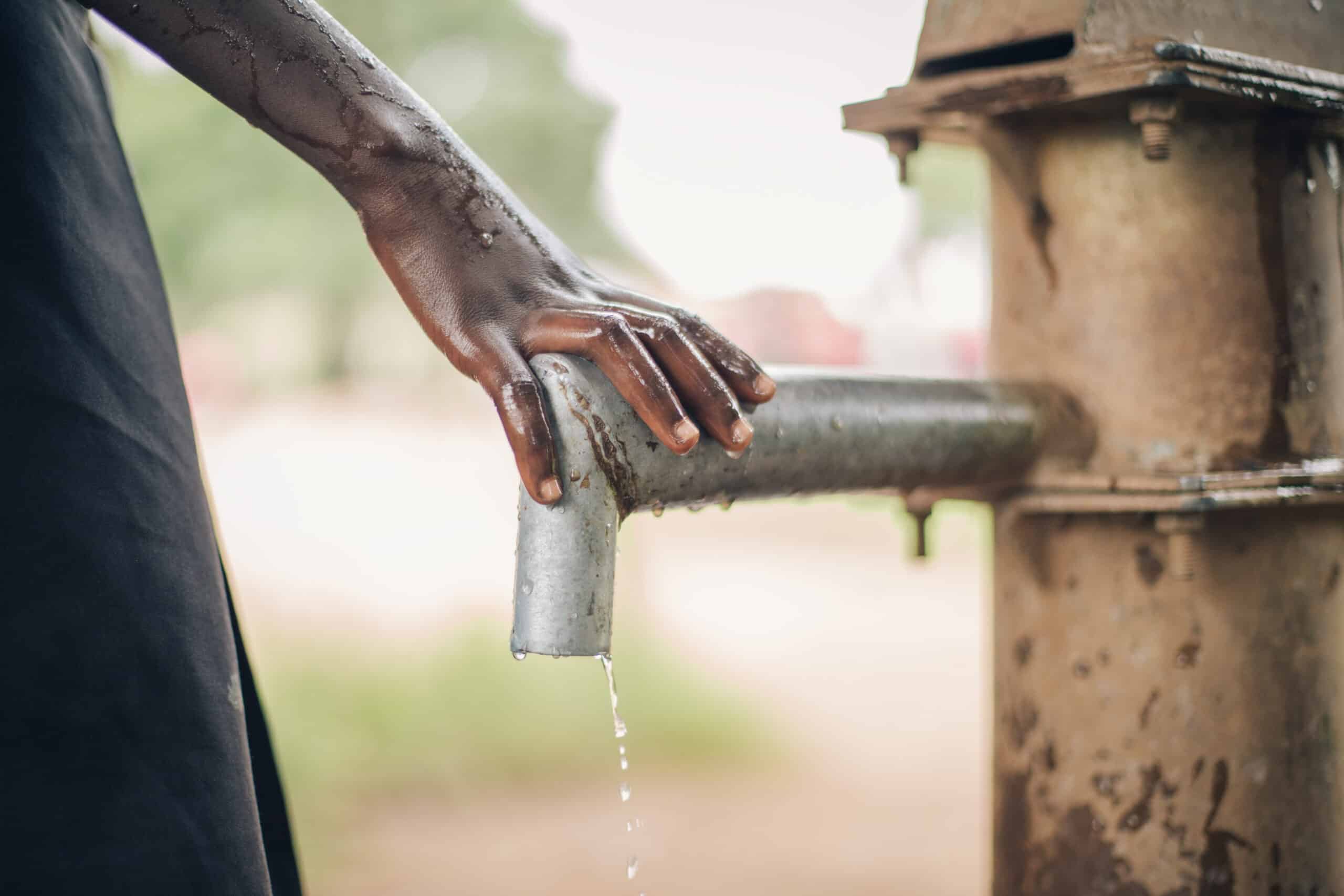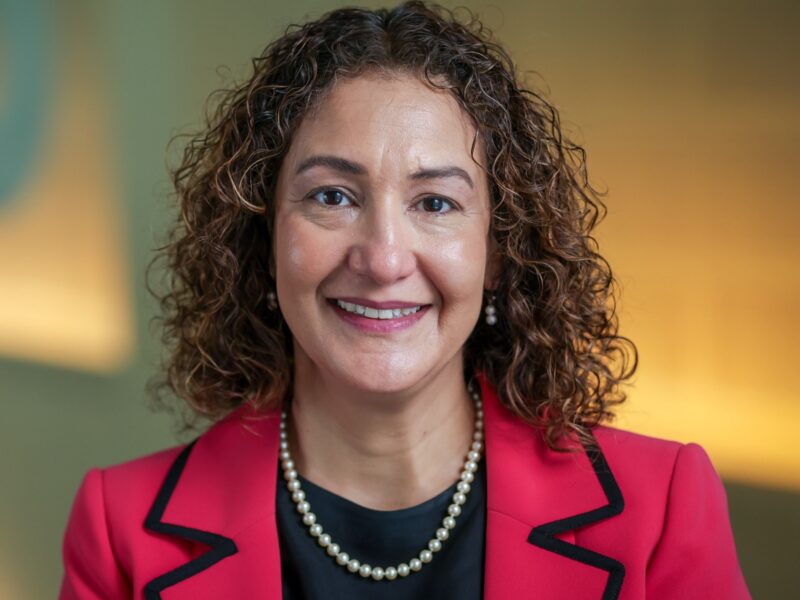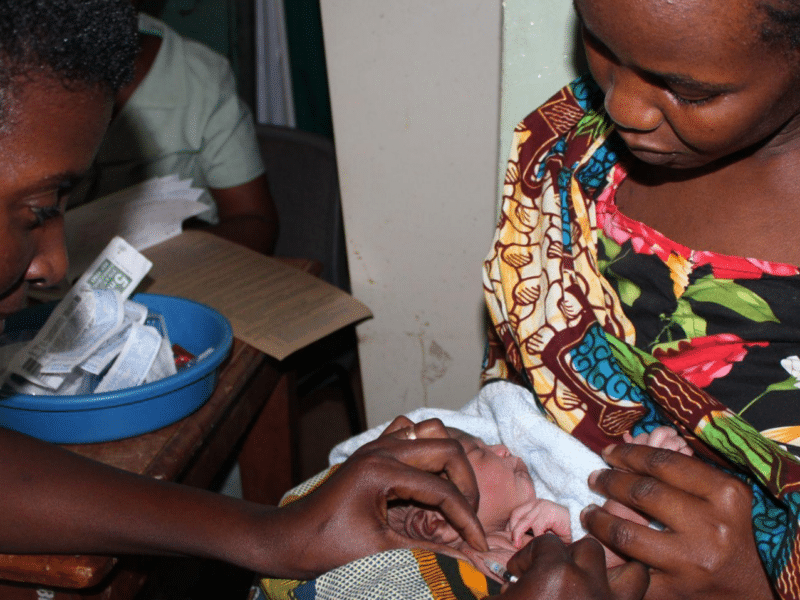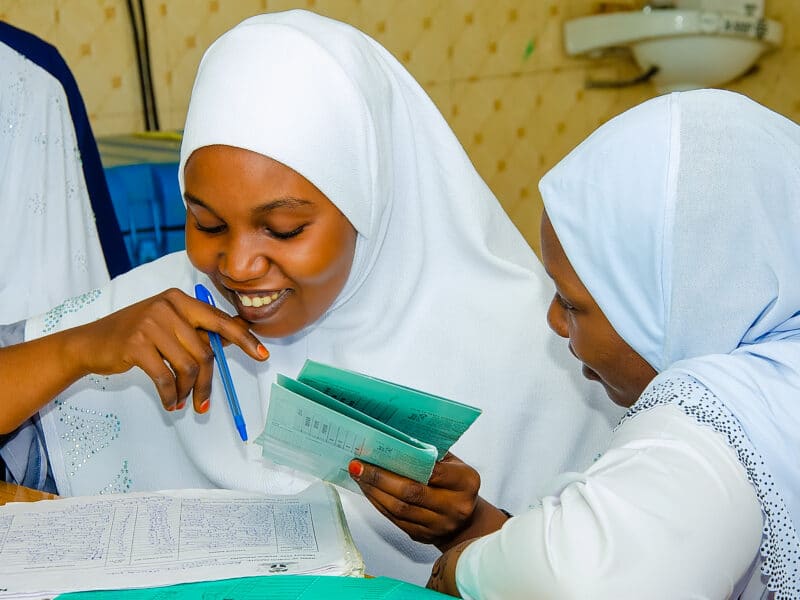Seator Town, a rural town in Barrabo district of Maryland County, Liberia, was founded nearly 100 years ago. Until 2023, this community did not have access to clean, drinkable water. Instead, community members were forced to travel into the forest to source water from creeks and rivers. Natural water sources are often untreated, which can lead to diarrhea and other waterborne illnesses.
Thanks to technical assistance from the Johns Hopkins Center for Communication Programs-led Breakthrough ACTION Liberia project, a new hand-powered water pump is now located in the center of Seator Town, where any one of its more than 2,000 residents can go for clean water to use for baths, laundry, food prep, drinking and more.
“There were always diarrhea cases and deaths of children under five because of drinking unclean water,” says Town Chief Josiah Chea. Clean water, he says, has made all the difference.
In 2021, the Breakthrough ACTION Liberia project set out to work with existing leadership and resources to improve health issues in 12 of Liberia’s 15 counties. To do so, they created Health Advocacy Committees in 46 districts, populated by influential community leaders in each community, and conducted SMART Advocacy training. Skills gained through the training can be applied to several health-related challenges, including issues related to water, sanitation, and hygiene.
After each SMART advocacy training, “Health Advocacy Committees are expected to then go out and have conversations, do investigations, understand community challenges, health or even otherwise, and then see how they can work with the community to come up with a homegrown solution,” says CCP’s Oretha Bangurah, advocacy and capacity strengthening specialist at Breakthrough ACTION Liberia. “And that’s what we want community members to understand: You don’t have to wait for external support, there are ways to address issues through the resources, networks and connections you already have.”
In Seator Town, the most pressing issue was access to clean water. Without drinking water, women and children were forced to travel into the woods to get to streams to collect water for their families. The water wasn’t healthy to drink, though they used it for that because it was their only option. Meanwhile, the journey to and from the streams could be dangerous. “What was notable about Seator Town is they had never had access to any sort of safe water system,” she says.
Together with the community members from Barrabo district, the Health Advocacy Committee determined that the best solution would be to build a hand pump accessible to all. Between September and December 2022, they determined how to build and maintain one.
They also took up a collection and reached out to people who no longer lived in the rural enclave, raising $2,600USD to install the hand pump. Once it was installed, they also created a maintenance fund in which every household contributed about 10 Liberian dollars weekly (roughly five U.S. cents).
And, with the help of Breakthrough ACTION Liberia, they promoted the use of safe water so that community members could understand the value of clean drinking water, the ways to use the pump properly and the importance of maintaining this new public work.
“We helped the Health Advocacy Committee engage and mobilize the community, building the skills of the community so they could develop their own solutions,” says CCP’s Lindsey Leslie, social and behavior change advisor for Breakthrough ACTION Liberia. “These weren’t external catalysts leading to improved health outcomes. It was the community themselves identifying, and then following up and resolving issues that directly affect them.”
Communities across Liberia commonly rely on external support from donors or central government authorities to intervene and address health issues within the community.
“There was often a reluctance by community leaders to champion and spearhead resolving issues such as a broken hand pump or even management of waste — rather, such issues are abandoned, and every community member becomes responsible for finding their own solution to access safe drinking water or their household waste management techniques,” Bangurah says. With the inception of the Health Advocacy Committees, she says, community leaders in Seator Town gradually took ownership of the town’s priority health issue.
The successes aren’t limited to Seator Town. In other areas of the country, Health Advocacy Committee members are helping to improve access to water by helping repair or construct hand pumps. They’re also working on sanitation issues, building latrines where needed, and clearing spaces for landfills.
In Nimba County, advocacy efforts helped to bring electricity to Karnplay Health Center, enabling providers to do their work without having to worry about power outages. In the past, community leaders raised funds for the repair of an ambulance to help people get to health services more quickly in an emergency.
The best part is that thanks to the advocacy training, Leslie says, “communities know the process that they went through the first time and, if they have to, can go through the process again to be able to continue to work on community and health issues.”





